Things you can recycle this Christmas
To reduce your carbon footprint once Christmas has passed, we thought it would be kind for the planet to share our top recycling tips with you to ensure items such as wrapping paper, Christmas trees, cards, decorations and food are carefully considered when the festive holidays end. For more information about how you can do your bit for the environment and responsibly recycle Christmas items, read on!
Wrapping paper
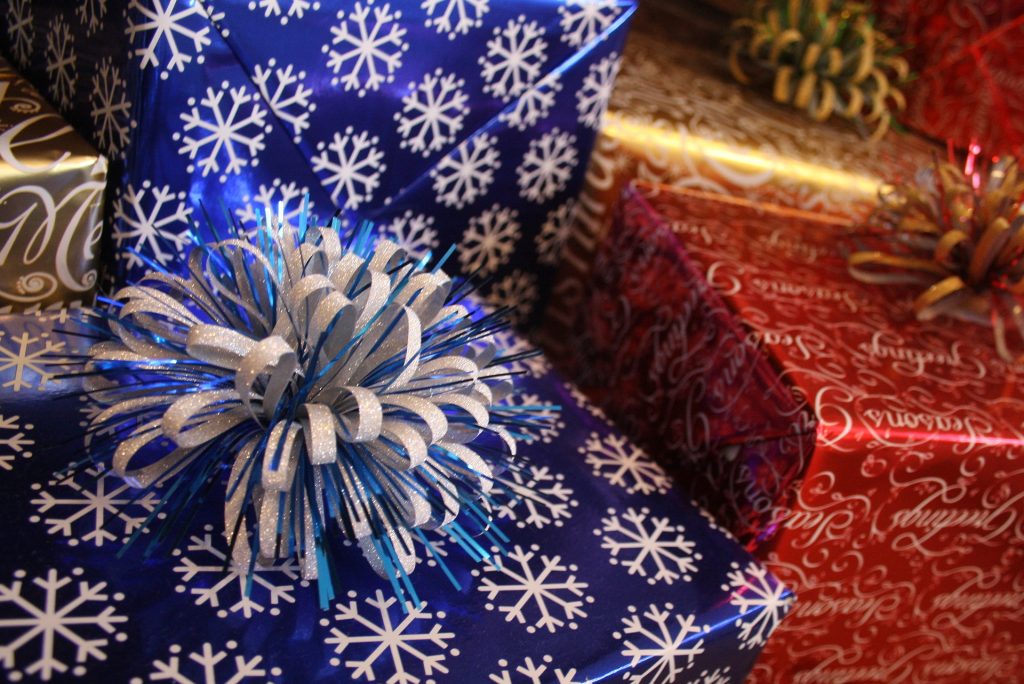
Most gift wrap is made from non-recyclable paper, the most common candidates are laminated, metallic and foil paper. What’s also surprising is that tissue paper can’t be recycled either because its fibres are too thin and short making it impossible to repurpose.
If you do use wrapping paper but still want to be kind to the planet make sure you:
– Look out for Christmas wrapping paper that reads ‘recyclable’.
– Remember to remove sticky tape, labels and bows before recycling.
– Remember that bows and other gift-wrapping accessories can’t be recycled but they can be reused – so if you can, take them off the gift and keep them for next year.
– Alternative ways of wrapping include using newspapers, magazines, old maps, and fancy fabrics.
Christmas cards
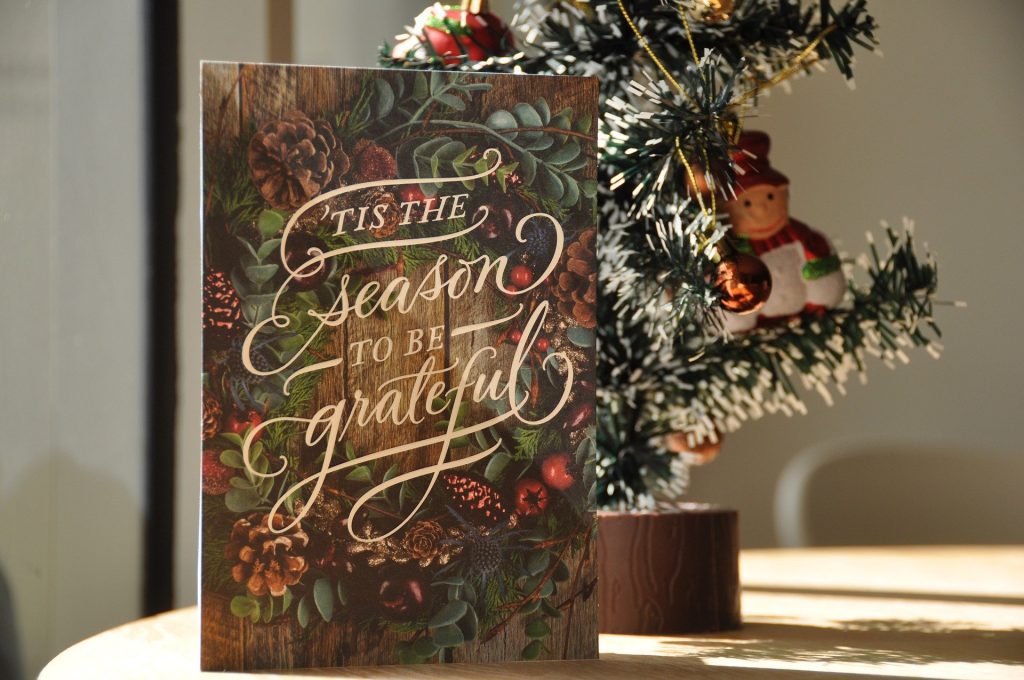
Everyone enjoys a surprise card in the post and after such a difficult year, more people are turning back to the old tradition of sending Christmas cards than ever. So if you do receive a delightful Christmas wish, be sure to take care by sending it on its way to be made into something another person can enjoy.
There are a few things to look for when buying Christmas cards, such as:
– The Forest Stewardship Council, also known as the FSC logo – can be found on Christmas cards, this means that it has been made using sustainable materials which have been sourced from well-managed forests and/or from recycled materials.
– Avoid glittery, metallic and shiny cards, and those with extra embellishments that aren’t made from plain card, as these can’t be recycled.
– If cards are a thing of the past for you, you could send out an e-card but be sure to check it’s going to the right email address first.
– Repurpose the Christmas cards you have received by taking the front design and turning them into gift tags!
– Recycle Christmas card envelopes too.
Christmas trees
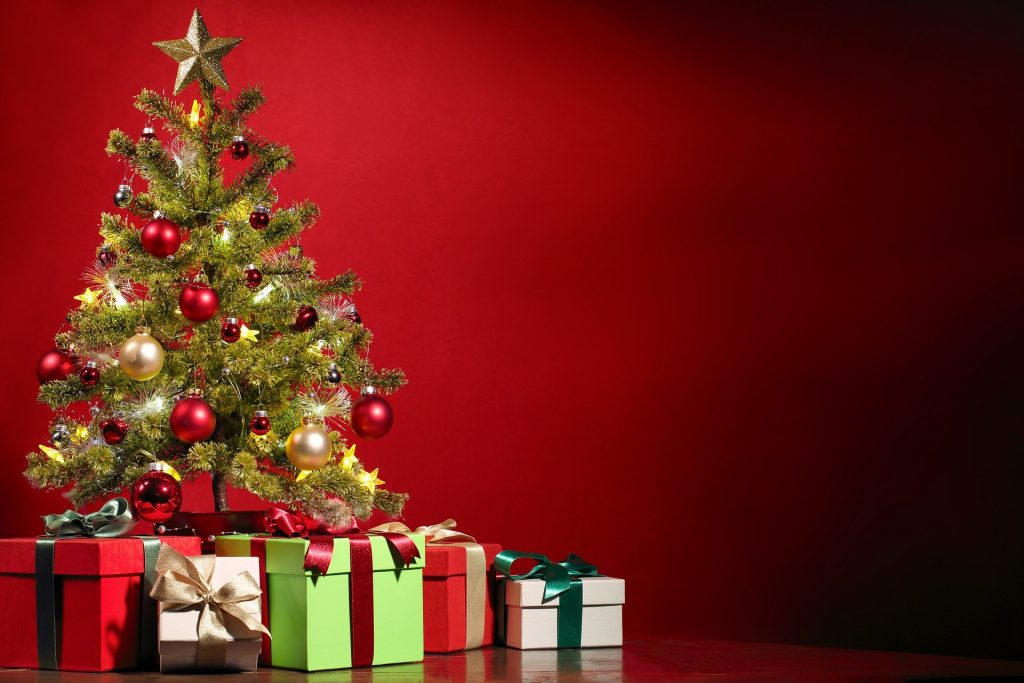
Did you know that 90% of UK households put up a Christmas tree during the winter festivities? This statistic includes various types of artificial trees and real trees. To lower your carbon footprint, it is recommended that you buy a real tree that’s sourced locally and responsibly, as opposed to an artificial tree. Artificial trees are generally made out of plastic, which not only means that it takes up plenty of energy to manufacture, but it also means they’re extremely difficult to recycle.
– If you do purchase a real tree, do not send it to landfill. In landfill, a real Christmas tree will produce harmful greenhouse gasses, instead, have it replanted, chipped or composted.
– If you do purchase an artificial tree, be sure to use it again and again each year.
Christmas decorations
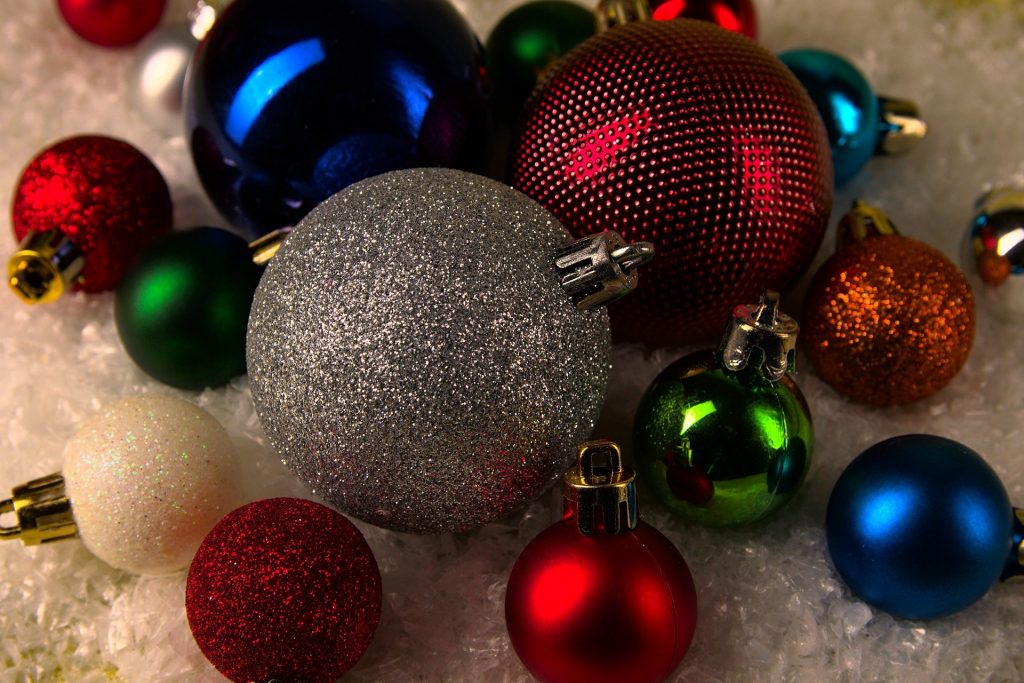
Most Christmas decorations are purchased with the idea that they will be used year after year, so when purchasing any new ones, be sure to consider their durability first.
– Store your Christmas ornaments well when they’re not in use to keep them looking as good as new for years to come.
– Should you wish to get rid of your old Christmas decorations, turn to a charity shop for someone to get enjoyment out of them, sell them online or dispose of them responsibly.
Food scraps
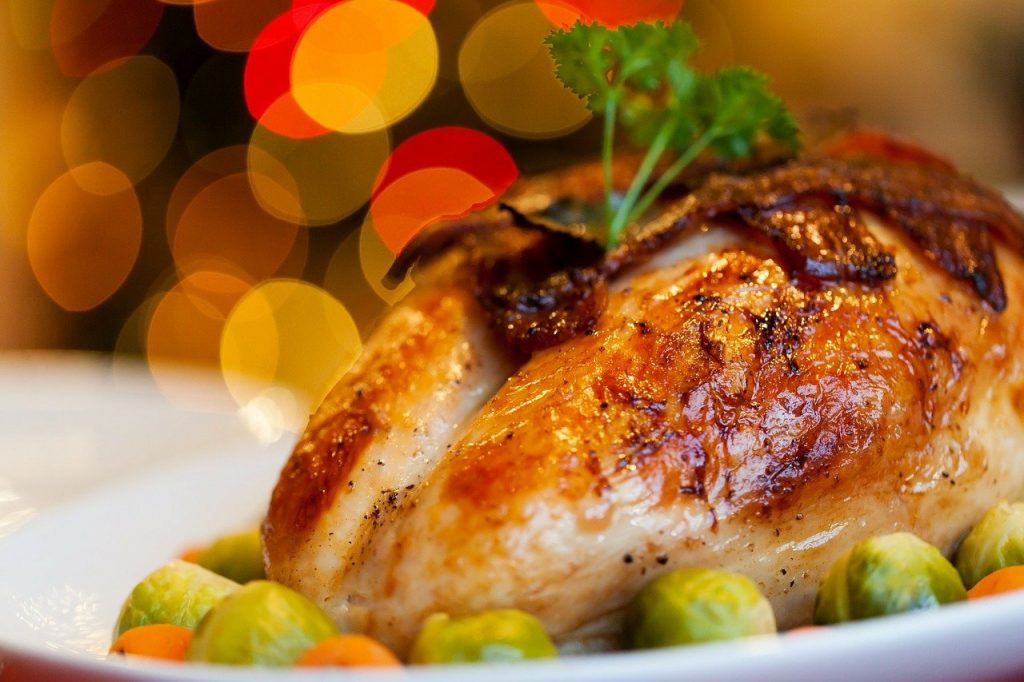
It is well-known that households buy much more food than usual during the Christmas holidays, which means we generally throw away more than usual too – 20% more to be precise.
To avoid food waste, here are some things you can do:
Make sure there is space in the freezer. Most food items can be frozen, so if you don’t manage to eat them in time, pop them in here to keep them fresher for longer.
Plan your meals ahead of time. This will reduce the amount that goes ‘out of date’ and is sent to landfill.
Read packets’ suggested serving potions. This can help you to decide how many mouths it can feed.
Write down a shopping list. This will help you to stick to your plans, instead of adding in too many special offers that you might not get around to eating.
Remember that shops aren’t closed for very long, so it’s better to buy small and more frequently.
Store your foods properly and according to their packaging, to prevent food waste.
Label leftovers, so you know when they were made and when they should be used by.
Compost food scraps. This includes fruit and vegetable peelings, eggshells, grains, bread, tea bags, coffee grounds and much more!
At CSH Environmental, we provide comprehensive recycling and food waste collection services to cafes, restaurants, pubs, schools, colleges and universities, where it is processed to produce electricity for over 7,000 local households. For more information about who we are and how we can help you with your recycling this Christmas, contact us today – we’re here to help.
back to latest news